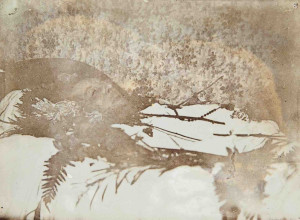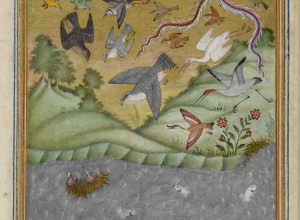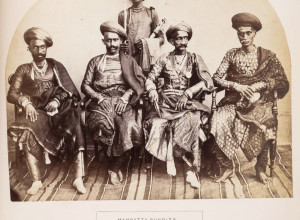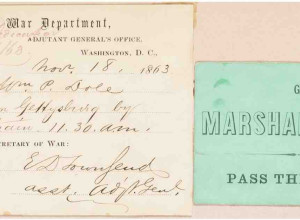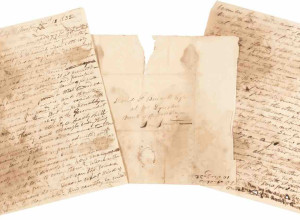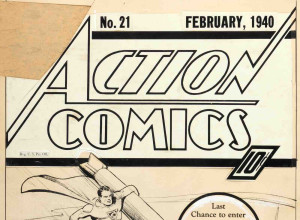Bodleian Libraries Collaboration with Herzog August Library Brings Rare German Manuscripts to Life
Oxford, England - The University of Oxford’s Bodleian Libraries and the German library, Herzog August Bibliothek in Wolfenbüttel, have announced a new collaborative digitization project that will open up repositories of medieval manuscripts from German-speaking lands. The three-year project will ensure that more than 600 western medieval manuscripts from both libraries’ remarkable collections are made freely available online to researchers and the public worldwide through a special online resource at https://hab.bodleian.ox.ac.uk/en. The project was launched at an event at the Bodleian Libraries on 19 March with the German Deputy Head of Mission, Julia Gross, in attendance.
The project, funded by The Polonsky Foundation, will have much to tell us about the European Middle Ages and about the history of Germanic monastic traditions. Through coordinated digitization and shared software and cataloguing standards, the project will open up new opportunities for research across the two libraries’ collections. A video about the project can be found at: https://www.youtube.com/watch?v=YZhwBfk-olA
The digitized collections focus specifically on manuscripts from German-speaking lands that originate from monasteries in the lower Saxony, Bavaria and Baden -Württemberg regions: Medingen, Braunschweig, Hildesheim, Helmstedt, Clus, Würzburg, and Eberbach. The Medingen manuscripts, from a nunnery in the area, are of particular importance and are highly illustrated. Most of the manuscripts held at the Herzog August Bibilothek were collected in the 17th century by Duke August and the Dukes of Brunswick-Lüneburg in Wolfenbüttel while the items held in the Bodleian Libraries were brought to England by Archbishop William Laud around the same time and included 46 important Latin manuscripts.
Richard Ovenden, Bodley’s Librarian, said: ‘Transforming these ancient documents into digital form helps transcend the limitations of time and space which have in the past restricted access to knowledge. Scholars will be able to interrogate these documents in new ways as a result of their availability in digital form. The Bodleian Libraries are pleased to have the opportunity to work closely with the Herzog August Bibliothek in this cross-cultural collaboration. We are immensely grateful to The Polonsky Foundation for their inspirational support.’
Peter Burschel, Director of the Herzog August Bibliothek, said: ‘Thanks to the far-sighted and generous support of The Polonsky Foundation, two long-established libraries in Europe will join forces in an innovative approach to digitisation driven by the actual needs of scholars and scholarship.’
Dr Leonard S. Polonsky CBE, Founding Chairman, The Polonsky Foundation said: ‘Following our support for the Bodleian's path-breaking collaboration with the Vatican Library, we are proud to support its significant collaboration with the Herzog August Bibliothek. Benefiting from the extraordinary opportunities afforded by digitisation, the project brings together the riches of Western Medieval civilisation and makes them available to researchers and the wider public in innovative and attractive ways.’
The project website (now live at https://hab.bodleian.ox.ac.uk/en) will showcase thousands of images of these rare manuscripts as well as providing detailed explanation about the texts, and their unique differences. The website will also provide background on the manuscripts’ origins via an interactive map. Visitors will be able to browse the digitized manuscripts by shelfmark, language, date and place of origin and explore highlights from the digitized collections. Both libraries will be delivering their images via the International Image Interoperability Framework (IIIF), which will enable side-by-side comparison and analysis, and will allow researchers to take advantage of open-source IIIF-based tools.
The manuscripts digitized through this project been chosen for the strength of the collections in both libraries and their importance for scholarship in their respective fields. The resource itself will be of interest to scholars in: religious studies, German studies, medieval studies and history, amongst others. With approximately 133,000 images from the Bodleian Libraries and 100,000 images from the Herzog August Bibliothek, the digitization effort will also benefit scholars by virtually uniting materials that have been dispersed between the two collections over the centuries. At launch the website already features over 18,000 images of 40 objects (with eight different religious houses represented); more images and content will be added over the three-year project.
The project is led by an advisory board of academics based in Germany and the UK and student research projects around the manuscripts are also being coordinated. The project will also enable staff across both sites to share knowledge on digitization and includes conservation work on these collections across both sites.
This project is one of many cross-European projects led by the Bodleian Libraries. Recently the University of Oxford and Stiftung Preu?ischer Kulturbesitz (SPK), the Prussian Cultural Heritage Foundation, signed an agreement which will intensify partnership based on each organisation’s globally-renowned cultural and scientific collections and scholarship (http://www.ox.ac.uk/news/2018-09-10-oxford-commits-deep-partnership-germany%E2%80%99s-largest-cultural-institution) and ensure continued partnership across European borders.
Other major projects made possible by contributions from The Polonsky Foundation are the digitization of the Bodleian’s exceptional collection of over 25,000 Cairo Genizah fragments, available online at http://genizah.bodleian.ox.ac.uk and the digitization of ancient Greek, Latin and Hebrew manuscripts and incunabula between the Bodleian Libraries and the Vatican Library, at http://bav.bodleian.ox.ac.uk.





